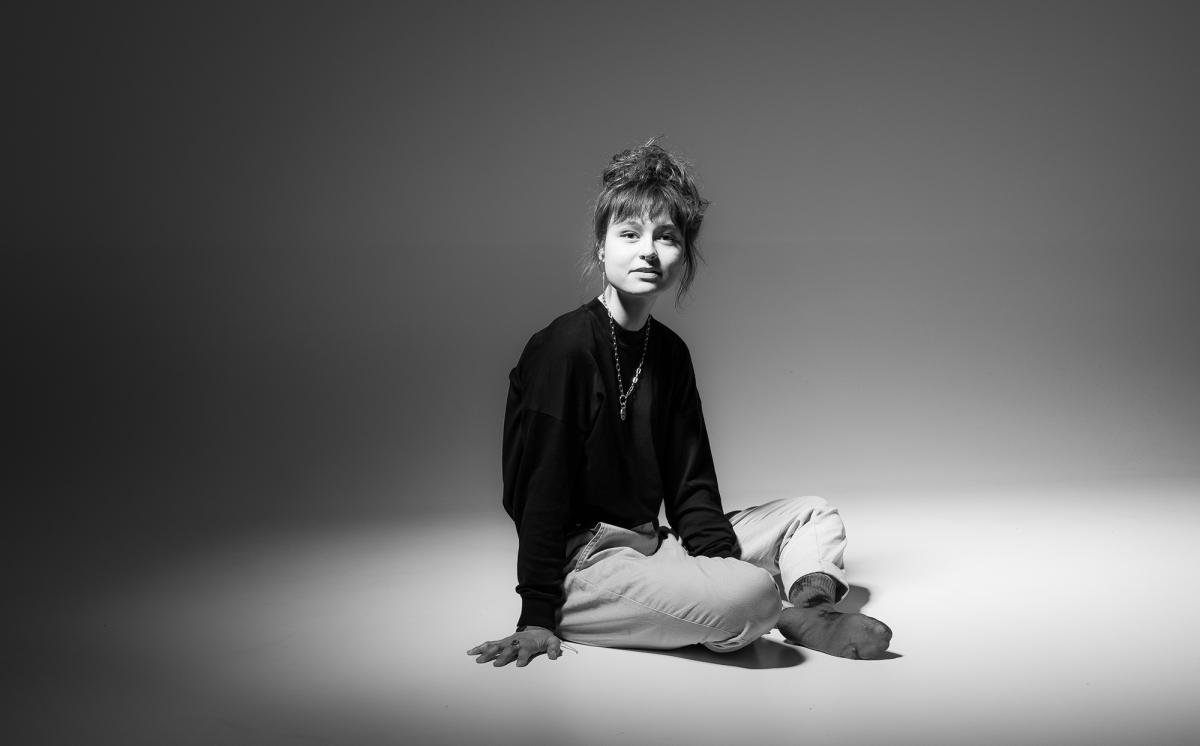Double-degree student in Comparative Dramaturgy and Performance Research: Exploring art in context
Read an interview with Comparative Dramaturgy and Performance Research student Marleen Wengorz at Uniarts Helsinki.

Tell us about yourself and how you ended up studying at Uniarts Helsinki?
I am currently in my fourth semester of the Comparative Dramaturgy and Performance Research (CDPR) master’s program at Uniarts Helsinki. It is a double-degree program between five European partner Universities (Helsinki, Oslo, Brussels, Frankfurt and Paris). You spend your first year at your home university and the second year at a partner university of your choice. I started my master’s degree studies at Goethe University in Frankfurt in Germany and came to Helsinki in February 2022. Officially, my second semester here ends in December, but I am thinking about staying longer. Maybe I will write my master’s thesis here.
Deciding to go to Helsinki happened rather by chance, since I was planning to go to Belgium for my second year. My university offered me Finland instead. I had not had any contacts with the Nordic countries before and I figured that going to Helsinki would definitely put me out of my comfort zone, which was exactly what I was looking for.
What has been the best thing about studying at Uniarts Helsinki and living in Helsinki?
I am very grateful to have become familiar with a very different university system compared to the German system, with different focus areas and teaching approaches and perspectives on art, performance and theatre. It has made me question, rethink, deepen and expand a lot of my preconceptions and ideas. I have met tons of great people, had the most beautiful experiences in nature and at festivals in Finland. I have also learned a lot about myself and other people.
What has been your most memorable study experience?
In June, we went for a one-week hike in Lapland with a study group. The idea was to be together for a week hiking every day and reading texts about the human relation to what we call nature. Reading these theoretical texts in the forest was very different compared to studying them at the university. In the forest, we had minimal outside world influences, a lot of silence and no other human contact than our group. The experience was deeply sensual. We learnt quite a few things about group dynamics and taking care of each other’s needs while respecting our different ways of doing things.
What has been the most challenging experience?
Getting used to Finnish culture and ways of doing things, learning a more artistic-research-practice-based approach, and finding out what I am actually interested in. My lecturers and classmates have been very curious about my personal interests in performing arts and they have been asking me questions I have not been asked before as part of my studies. I am still in the process of finding the answers. It has been an intense experience to be exposed to a completely new context that is very different from home. Arriving here and settling down has not always been easy. However, many things just take time and have become easier the longer I have been here.
What do you dream of doing after you graduate?
I am not sure. For now, I would like to stay longer in Finland and see where that leads. Next summer, I would like to expand my cooking practice at festivals and then – let’s see! Over the past months, I have become interested in how to combine cooking and bringing people together in festival contexts. I am curious about exploring cooking and hosting further as an artistic practice.
Our study program takes the notion of theatre and performance across national borders and educates students about various performing art practices. This has been particularly interesting. I did my bachelor studies in political science and I am very interested in the contexts of art processes, including sociological and political theories or processes and phenomena in modern societies. I am curious about communities, collective decision-making, conflict resolution and communication as well as radical democratic practices.
What preconceptions did you have about Finland? What do you think about them now?
To be honest, I had absolutely no idea about Finland before coming here. I had only heard that the language is quite hard to learn, which has proven to be very true. During my very first week in Helsinki, one of my flat mates told me that I must learn to rely on my own perspective and expression here in Finland. In his experience, Finnish people do not tend you to give a lot of feedback or tell you what they think, so you must learn to become independent of outside appreciation. I have found a lot of truth in this advice.